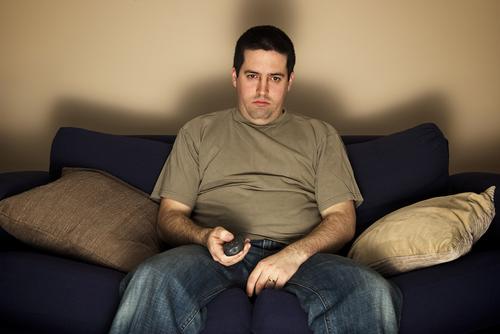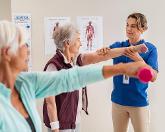see all jobs
Experts give views on encouraging exercise amid an inactivity crisis
Recent suggestions from health expert Dr Mike Loosemore, head of exercise medicine at UCL’s Institute of Sport Exercise and Health, posit that most people in the UK are so far away from the government’s recommended exercise guidelines that they give up before they even start.
Loosemore believes that the bar should be set lower than it is, which could encourage people to be active in the most simple ways: standing up instead of sitting down, for example.
Recent research has suggested that little exercise is disproportionately better than none, with the smallest amounts still bringing remarkable health benefits . With this in mind, what can the leisure industry do to encourage more people to get active – even if it’s in a straightforward format?
“The health club industry has to understand that not everyone wants or is able to go to the gym to be physically active; operators need to find news ways to reach out to them. Fitness instructors should be trained in motivational interviewing and be able to advise people on how they could get more active. That may well not be at the gym at first,” says Loosemore, who is also the founder of Active Movement.
“Health club operators could help by spreading the word that it’s not just heavy or moderate activity that can improve health, but doing any type of activity.”
Health clubs may also benefit from an increase in opportunities as people are increasingly encouraged to take part in the most basic forms of physical activity - an idea that is backed by Dr Justin Harvey, consultant at Public Health England.
“Public Health England is publishing a new national framework to move things forward on an industrial scale,” says Harvey.
“There’s a massive role here for the sport and leisure industry to drill down to those audiences they don’t reach, find out the barriers and design programmes that will appeal.”
One such option would be to attract people through outreach opportunities that don’t always centre around gym-based activities. This idea has already been partially explored by think tank Policy Exchange, which has suggested that all GPs should be given the power to prescribe fitness classes in local parks.
Other initiatives have suggested that people are encouraged to change commuting patterns by using the tube more often in the capital, or parking a little short of work and deciding to walk or run the rest of the way instead.
Rob Barker, president at Precor, has alluded to the benefits of the sector coming together to tackle the problems of inactivity by sharing information and ideas.
“To change behaviour, the industry first needs to team up: it’s a fragmented sector and we have to share information among suppliers and operators,” he says.
Looking at reward cultures and the implementation of wearables and new technology could also prove beneficial for both clubs and the public at large.
“Clubs should also be encouraging people to bring more incidental activity back into their lives – such as a lunchtime walk – using smartphones to keep track of movements,” adds Barker.
“There need to be micro rewards every time members do an activity, so they get daily appreciation for their efforts.
Read the experts’ full opinions on generating increased activity in the latest edition of HCM magazine, pp. 34-35.
- News by sector (all)
- All news
- Fitness
- Personal trainer
- Sport
- Spa
- Swimming
- Hospitality
- Entertainment & Gaming
- Commercial Leisure
- Property
- Architecture
- Design
- Tourism
- Travel
- Attractions
- Theme & Water Parks
- Arts & Culture
- Heritage & Museums
- Parks & Countryside
- Sales & Marketing
- Public Sector
- Training
- People
- Executive
- Apprenticeships
- Suppliers

































